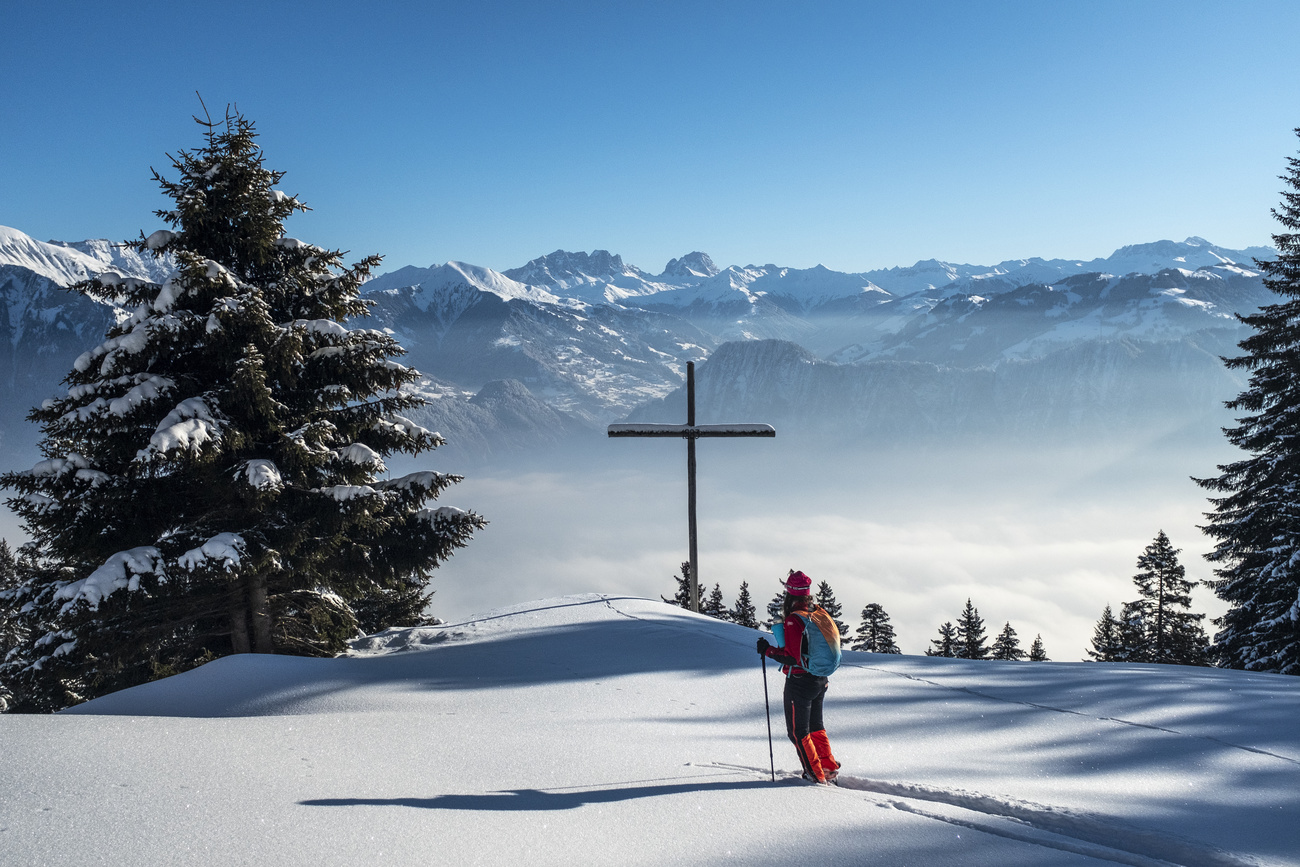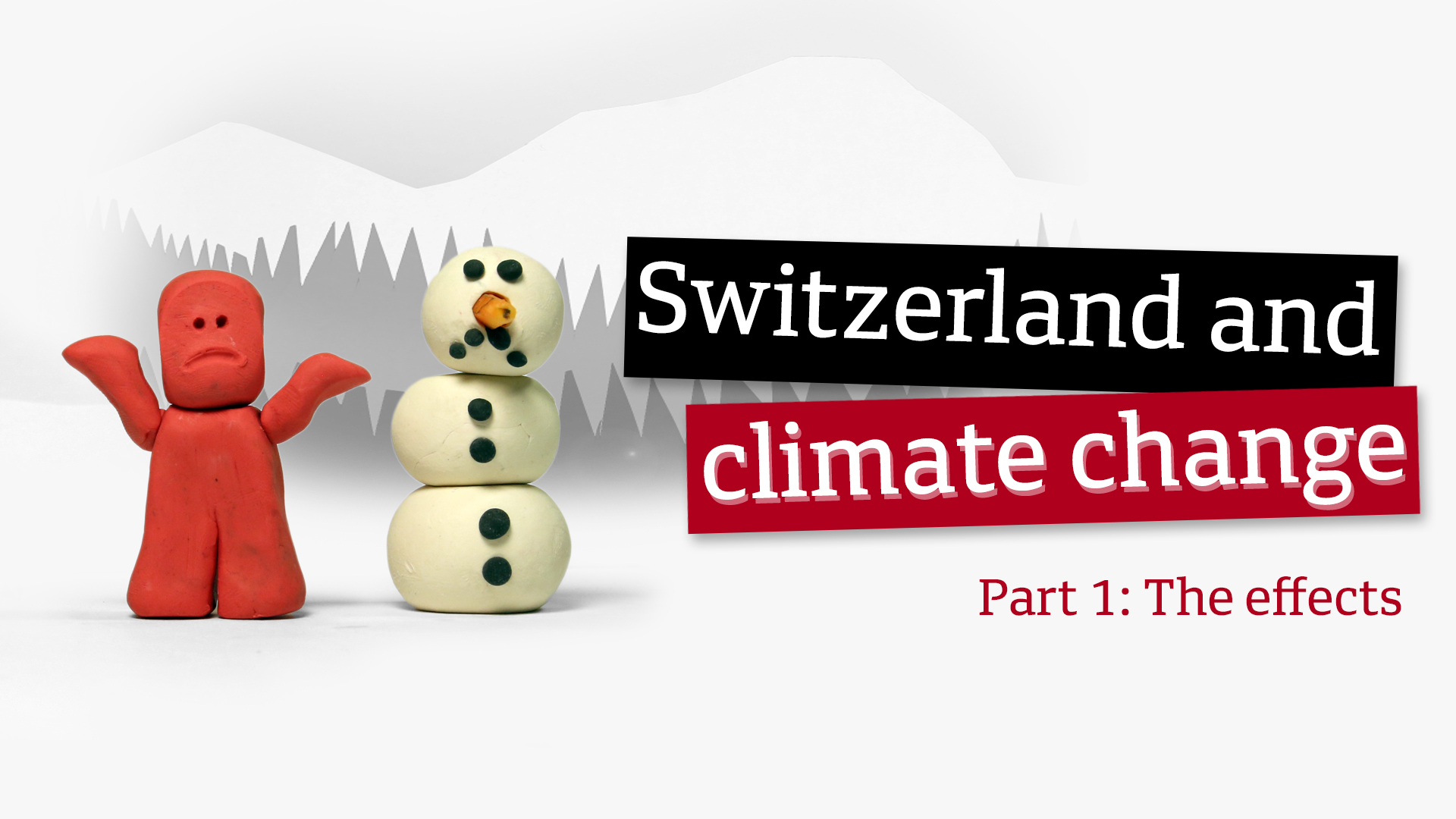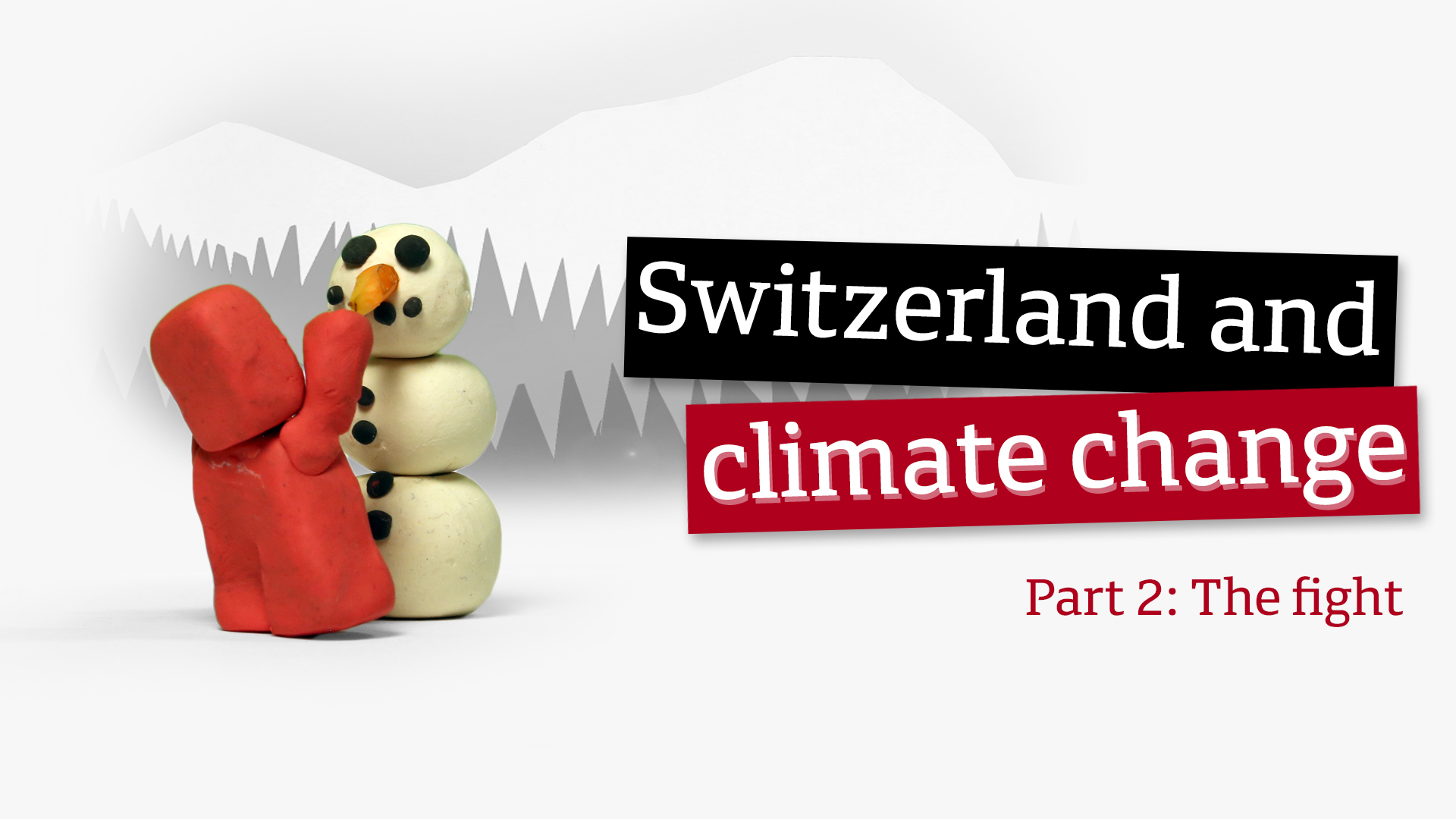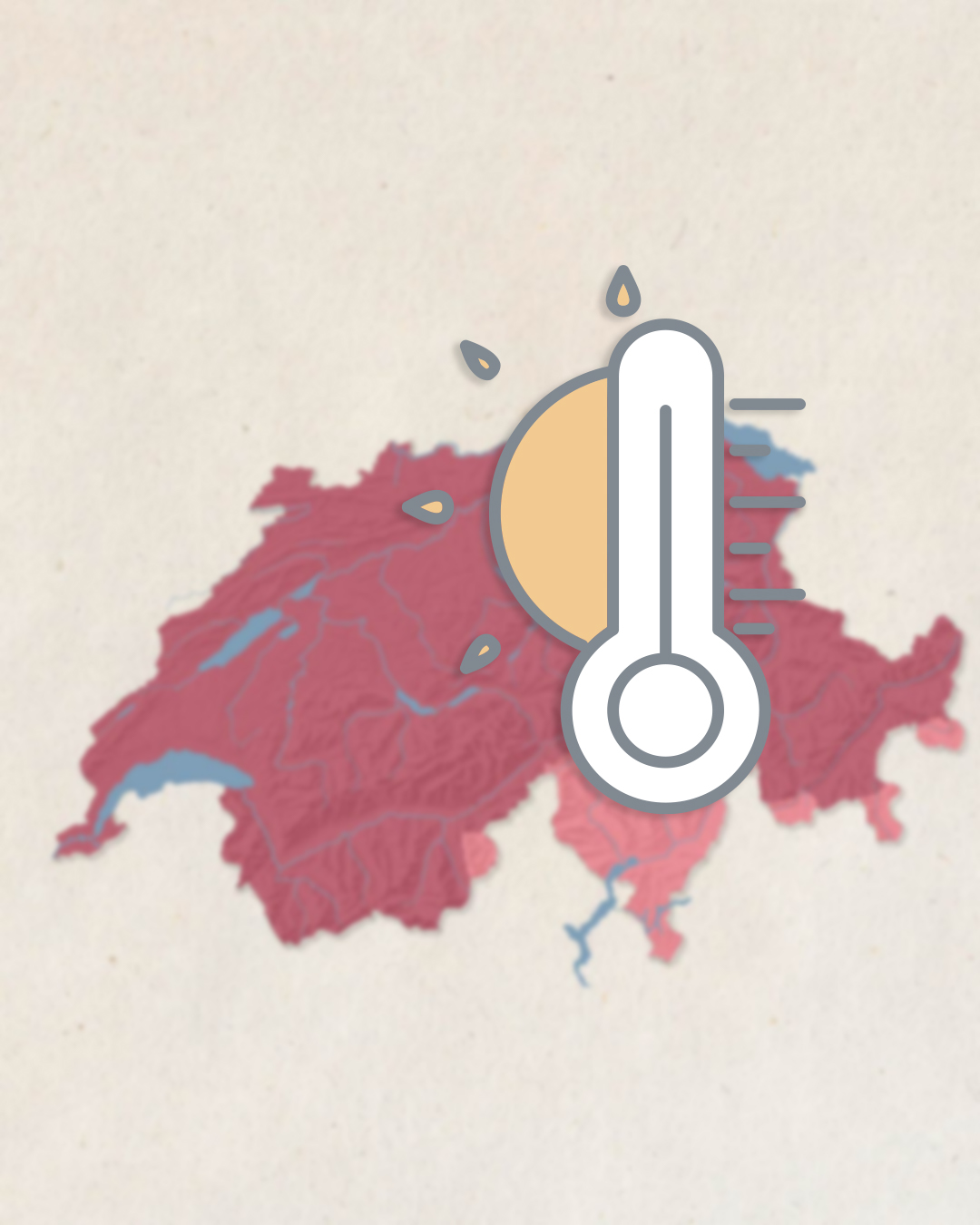Switzerland to get hotter and drier with less snow

By the middle of the century, Switzerland’s climate will be drier and warmer, with less snow and more intense precipitation, according to scenarios drawn up by federal weather agency MeteoSuisse. However, the effects will vary greatly depending on the canton and season.
The projections developed by the federal government’s National Centre for Climate Services under the direction of MeteoSuisse, look at likely climate developments with and without climate protection measures, the agency said on TuesdayExternal link.
In the long term, the average amount of precipitation and its frequency will decrease in the summer in all cantons. Summer periods without rain will be longer. For example, in the northern town of Buchs they are projected to last on average 1.4 days longer if no climate protection measures are taken, and 2.1 days longer in the southwestern town of Sion.
There will also be more tropical days, says Meteosuisse. On the hottest summer days, the thermometer will be 2 to 5.5 degrees higher than today. Scorching summers could become the norm and heat waves will be more frequent and more extreme.
Low-lying urban areas will be particularly vulnerable. Without climate protection measures, the cantons of Zurich, Geneva and Ticino, for example, could have three to four times as many tropical days in 2060 as they do today, according to the projections.
Heavy precipitation is likely to be more frequent and intense than at present. All seasons will be affected, but particularly winter. In the coldest months of the year, for example, the highest daily precipitation could increase by an average of up to 9%, depending on the region.
Milder winters with less snow
Winters are predicted to be milder by the middle of the century, with precipitation mainly in the form of rain, not snow. In the southeastern canton of Graubünden, for example, the number of days with fresh snow will decrease “significantly” at all altitudes.
In regions between 1,600 and 2,000 metres above sea level, there will be around 20 fewer days of snow in 2060, Meteosuisse predicts. The implementation of climate protection measures would limit this decrease to an average of 14 days, it says.

In compliance with the JTI standards
More: SWI swissinfo.ch certified by the Journalism Trust Initiative





You can find an overview of ongoing debates with our journalists here. Please join us!
If you want to start a conversation about a topic raised in this article or want to report factual errors, email us at english@swissinfo.ch.